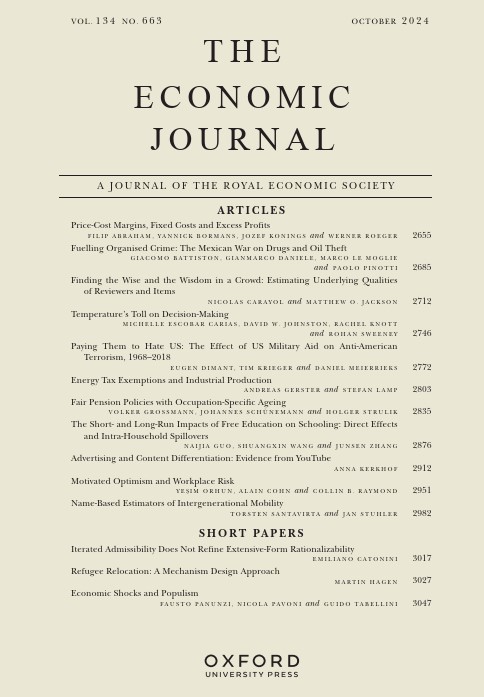
Trade Shocks, Labour Markets and Migration in the First Globalisation
This paper studies the economic and political effects of a large trade shock in agriculture—the grain invasion from the Americas—in Prussia during the first globalisation (1870–913). We show that this shock led to a decline in the employment rate and overall income. However, we do not observe declining per capita income and political polarisation, which we explain by a strong migration response. Our results suggest that the negative and persistent effects of trade shocks we see today are not a universal feature of globalisation, but depend on labour mobility. For our analysis, we digitise data from Prussian industrial and agricultural censuses on the county level and combine them with national trade data at the product level. We exploit the cross-regional variation in cultivated crops within Prussia and instrument with Italian and United States trade data to isolate exogenous variation.





